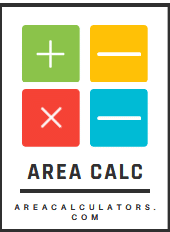Ever wondered how to determine the reverb time (RT) of a track based on its beats per minute (BPM)? Look no further! The BPM Reverb Calculator is a handy tool designed to provide you with the reverb time of your music based on its BPM. Let’s explore how it works and why it’s useful.
Similar Posts
1/4 Wave Resonator Calculator
The application of Physics is everywhere. It is Physics that makes wonders in the world of technical advancements. The physical concepts such as; frequency, resonation and waves and their precise measurement are key to obtaining the maximum benefits from Physics. Right here, we are going to explore the excellent concept of the 1/4 Wave Resonator…
Arbitrary Constant Calculator
Welcome to the fascinating world of the Arbitrary Constant Calculator! Have you ever wondered how adding a mysterious constant to a variable can change the outcome of a mathematical equation? In this article, we’ll delve into the magic behind the formula, uncover its practical uses, and discuss why understanding arbitrary constants is essential in mathematics…
Basketball Calories Calculator
Welcome to the Basketball Calories Calculator! Have you ever wondered how many calories you burn while playing basketball? Whether you’re shooting hoops in your backyard or playing a competitive game at the gym, this calculator helps you estimate the calories burned during your basketball sessions. Basketball Calories Calculator Weight (pounds) Playing Time (minutes) Calories Burned…
Carpet Area Calculator
The Carpet Area Calculator is a handy tool used in real estate and construction to figure out how much floor space you can use in a building. Let’s talk about how it works, step by step, and why it matters in designing and building places. Carpet Area Calculator Total Built Up Area (ft^2) Carpet Area…
Kite Area Calculator
The Kite Area Calculator is a valuable tool in geometry, providing a straightforward method to determine the area of a kite-shaped figure. Let’s explore the formula, variables, step-by-step calculation, and understand the importance of kite area calculations in various fields. Kite Area Calculator Kite Area Calculator Major Diagonal Length (a): Minor Diagonal Length (b): Units:…
Ellipsoid Surface Area Calculator
Ellipsoids are like stretched spheres and show up in different areas, like space and building things. The Ellipsoid Surface Area Calculator is a helpful tool for figuring out how much space is on the outside of an ellipsoid. This article will help you understand the math used in the calculator, why it’s important to measure…
